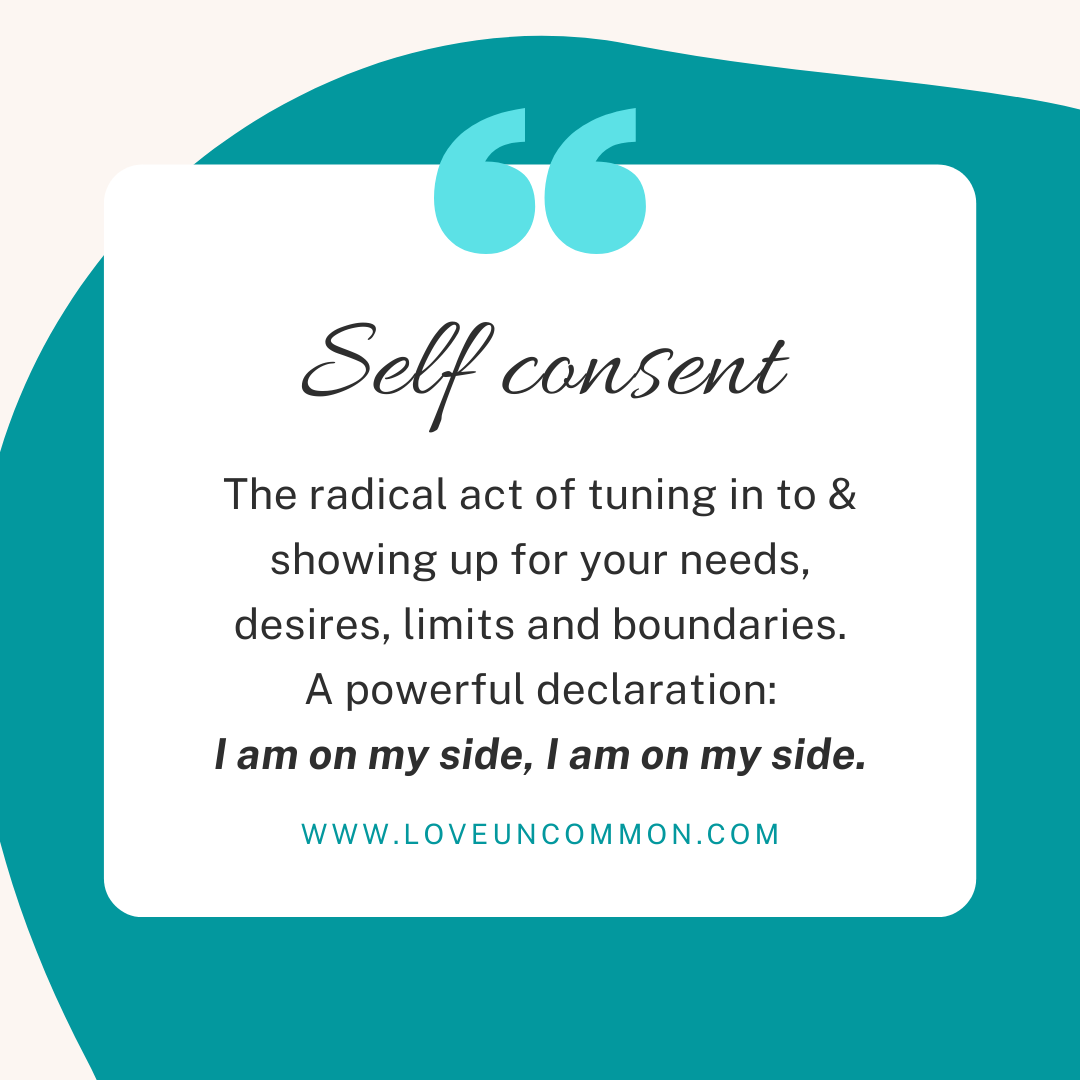Self consent, at its heart, is about treating your needs, desires and limits with respect. It is about being curious about yourself, and making choices that express your authentic self. It is central to learning to have a consensual relationship with others because it embeds consensual practice in your life and all your interactions. I believe we have to have a consensual relationship with ourselves before we are capable of consenting to the interactions with others. That means understanding our own bodies sense of ‘yes’ and ‘no’, and our own desires, needs and limits.
It is an unusual person that has arrived at adulthood without unhealthy messages about the fact that we should do things that other people want (even to/with our bodies) whatever we might feel about it. This is ingrained in many of us from childhood in a wide variety of ways. Maybe it was the insistence that you should always kiss and hug Auntie Mable when she leaves (even if you strenuously objected), or perhaps it was that you should always be happy. It is part of the insistence that we perform gender roles properly – so boys and men were censured for lots of displays of emotion, from smiling too much or expressing upset with tears. Girls were expected to accept more encroachment into their physical space and to be expressive with tears and smiles, but never anger. No one got the good part of this equation, we were all stifled in our expressions of our feeling, and that can lead to us finding it hard to recognise the emotions that we were not supposed to show.
You might be wondering what this has to do with consent – I think it is fundamental to it. Recognising the signals in your body that tell you that you are having an emotion is crucial to determining your wants and needs. These signals tell you when you’re safe or in danger, when you want something and when you really really don’t. Without being connected to our internal desires and limits it is impossible to consent to anything.
Those feelings that many of us had to stuff down to comply with the social obligations related to our role in our family, our gender, our being a kid in the world, are critical to understanding our own sense of ‘yes’ and ‘no’. Of course, this carries on into adulthood where it is acceptable (and expected) for people to push, cajole and otherwise force others to do things that they simply don’t want to do. From having ‘just one more’ drink to trying new food, it is often understood as friendly banter rather than consent violation. When we had to override our emotional or physical response to a situation, lots of us stop trusting our bodies and our sense of our own boundaries, limits and desires. Learning self consent is about getting that stuff back. Finding our emotions in our bodies, working out how to find an embodied sense of ‘yes’ and ‘no’, and feeling entitled to express it.
